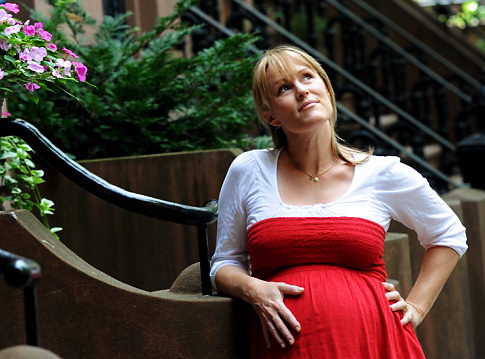
A Rebel Born from Grief
Idgie Threadgoode’s story begins not with defiance, but with devastating loss. As a young girl, she idolized her older brother Buddy—his warmth, humor, and love formed the core of her childhood world. When Buddy died tragically, hit by a train before her eyes, Idgie unraveled. Her grief did not manifest in tears or breakdowns. Instead, it transformed her into a wild, unpredictable force—someone who would never again submit to control, expectation, or polite society.
This early trauma is essential to understanding who Idgie becomes. The untamed girl who grows into a fiercely independent woman is not rebelling for its own sake—she is surviving. Grief is the soil where her rebellion grows, and it colors every decision she makes.
Living Outside Convention
In 1930s Alabama, women were expected to be quiet, married, and dependent. Idgie is none of these things. She wears trousers, swears, drinks, gambles, and lives among nature like a backwoods oracle. Her community calls her “crazy,” but it’s said with affection and awe. Idgie’s refusal to conform makes her a mythic figure—especially in a town that prefers its women modest and invisible.
Her wildness isn’t performative; it’s instinctual. Idgie builds her life on her terms, and she does so without apology. This makes her magnetic—not just to Ruth, but to the outcasts, the overlooked, and the misfits of Whistle Stop. To them, Idgie is hope with a firecracker in her pocket.
The Love That Dared Not Speak
While the film stops short of labeling Idgie and Ruth’s relationship, the bond is unmistakable. It is deep, romantic, and rooted in years of shared purpose and quiet devotion. When Ruth calls for help to escape her abusive husband, Idgie doesn’t hesitate. She arrives with a plan, a car, and a promise: Ruth will never suffer again.
Their life together at the Whistle Stop Café is a partnership in every sense. They build a home, raise a child, and protect one another. Though society refuses to acknowledge their relationship, the film does—in its silences, its gestures, and its unwavering focus on their emotional intimacy.
Idgie’s queerness, implied but never confirmed, becomes part of her broader refusal to live a lie. Her identity, like her lifestyle, exists outside the lines.
Courage in Quiet Acts

Though Idgie is bold and brash, her courage is often expressed through quiet acts of care. She feeds the hungry regardless of race or class. She shields her loved ones from harm. When Sipsey kills Ruth’s abusive husband, Idgie doesn’t flinch—she helps dispose of the body and shields Sipsey from the law.
These acts of protection and defiance aren’t grand gestures; they’re grounded in love. Idgie knows the stakes of resistance in the Jim Crow South, and she takes risks not for glory, but for the people who trust her.
The Café as a Manifesto
The Whistle Stop Café is more than a diner—it’s a sanctuary. Idgie and Ruth run it as a space where everyone is welcome, and in doing so, they quietly challenge the racism and sexism of the time. The café becomes a symbol of everything Idgie values: freedom, equality, family, and defiance.
Through food and fellowship, Idgie builds a community that exists outside the hate and fear of the outside world. The café doesn’t just feed people—it heals them. In this way, Idgie’s resistance becomes generative. She doesn’t fight just to destroy—she fights to create.
Grief, Again
Ruth’s death is perhaps the only loss that rivals Buddy’s. By the time Ruth succumbs to cancer, Idgie has become her world. The scene of Ruth’s final days is understated, but brutal. Idgie’s voice is steady, but her hands shake. She holds Ruth’s hand like it’s the only thing anchoring her to earth.
After Ruth’s death, Idgie changes again. She doesn’t become bitter or hard, but quieter. She carries Ruth’s memory with her, not as a wound, but as a source of strength. Even in absence, Ruth remains part of her life—through Buddy Jr., through the café, and through every story Idgie tells.
A Legacy Passed Through Story
In the film’s final act, we meet Ninny Threadgoode—an elderly woman telling stories to Evelyn Couch in a nursing home. Ninny insists she is not Idgie, but the hints are everywhere. Whether she is or isn’t, what matters is this: Idgie lives on through the stories. Through the laughter, the tears, and the honey she stole from bee hives with her bare hands.
Idgie’s legacy is not written in history books, but in whispered memories and family legends. She becomes larger than life—not because of the rules she broke, but because of the people she loved and protected.
A Woman of Her Own Making
Idgie Threadgoode is a rare character in American cinema—a queer-coded Southern woman who is wild without being broken, fierce without being cruel, and independent without being lonely. She resists every role offered to her and writes her own script.
She does not exist to be pitied, fixed, or punished. She exists to remind us that identity can be chosen. That love can be brave. And that the wildest hearts are often the most tender.
Conclusion: Still Buzzing Like Bees
Idgie’s story doesn’t end when the credits roll. She lives on in Evelyn, in Ninny, in every person who dares to live authentically. Her spirit is like the bees she so fearlessly charms—loud, buzzing, alive, and impossible to tame.
She reminds us that the wild path may be harder, but it’s also freer. And sometimes, it’s the only one worth walking.
